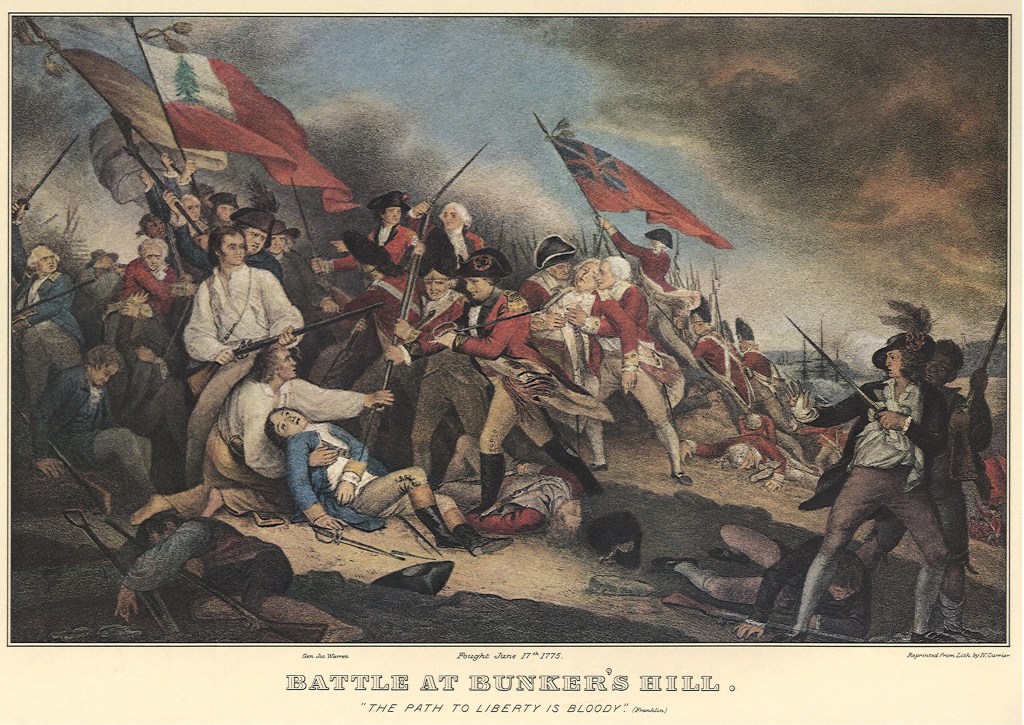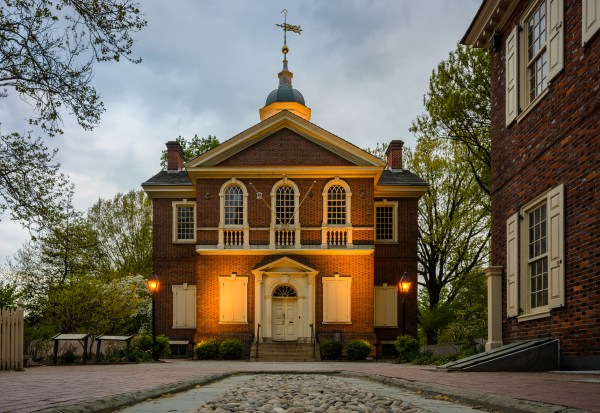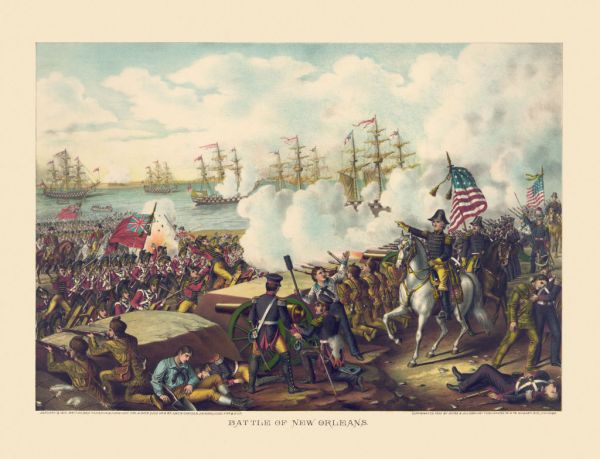British Gen. Sir William Howe sailed away from American shores in disgrace during the spring of 1778, never to return. Members of Parliament and the British press had issued savage condemnations of his failure to crush the American rebellion, and while he was formally acquitted by Parliament of any negligence or gross mismanagement, his reputation among his countrymen was thoroughly tainted. Ironically, Howe’s record on the battlefield would have been the envy of most generals. He had successfully bested the enemy in combat repeatedly, seized control of the American capital city (Philadelphia) and its most important metropolis (New York), and his opponent was at that time barely holding together a starving army at Valley Forge. Yet he had never managed to finish the job.
Time and again, Howe had chances to follow up battlefield success with a crushing blow against the Revolution’s real center of gravity: George Washington’s army. His failure is all too often attributed to arrogance or a lackluster disposition. But a major source of Howe’s failure was hesitance, a trait that came from brutal personal experience. He did hurl his men headlong against entrenched American forces. Once. That proved to be his costliest battlefield success, as it set the tone for the next three years of warfare on both sides.
The Americans lost plenty of battles during the Revolutionary War, all of which Britain failed to turn into strategic success. Defeats at Brandywine, Germantown, Charleston, and Guilford Courthouse proved temporary setbacks on the road to independence. Yet no tactical defeat has been enshrined in popular memory quite like the (misnamed) Battle of Bunker Hill, fought June 17, 1775—250 years ago today—at Breed’s Hill in Boston. Its fame derives from the fact that it proved to all parties the fighting mettle and determination of the American forces. After Bunker Hill, Britain could never again doubt it faced a formidable foe, and the rebels took heart that driving out the world’s foremost military power was an achievable goal.
Long-building tensions between the mother country and the American colonies finally exploded in April 1775 with the famed shots fired at Lexington and Concord, in which more than 300 British troops were either killed or wounded. After that bloody engagement, British commander Thomas Gage hunkered his forces down in Boston, while Americans swarmed the surrounding hills to contain the British army there, thus beginning the Siege of Boston.
The American rebels stood in marked contrast to their British counterparts. The loose collection of militia and volunteers overlooking Boston would scarcely be considered an army by European standards. No uniforms existed. In fact, members of one smartly dressed company feared their distinctive blue coats would make them stand out too much amid a crowd of disheveled, unkempt volunteers; they preferred to cover themselves with civilian attire.
Regardless of what they were wearing, all were theoretically under the command of Gen. Artemas Ward. As the ranking officer in Massachusetts’ militia, Ward could at least claim legitimate authority. The truth was that the American forces were very much a series of separate states forced together by their mutual enemy (and ostensible mother country). The motley assemblage included militiamen from Connecticut, New Hampshire, and Rhode Island, all of whom owed their primary allegiance to their legislatures back home. Ward’s hold over the army was, therefore, rather tenuous, but at the moment, all held together for the common cause of keeping the British army bottled up in Boston.
Under Ward stood the two men who would most be identified with the coming fight. Col. William Prescott was a hard-charging French and Indian War veteran spoiling for a fight. Connecticut officer Israel Putnam—“Old Put” to his men—was legendary for his exploits against the French, including having been captured and tortured by Indians and sailing on an expedition to Cuba.
Finally, blurring the lines between civil and military was Dr. Joseph Warren. Warren was hardly radical, and he had broken with the British government reluctantly. He had written patriotic pamphlets opposing British policies, but spoke fondly of the mother country a year before Bunker Hill. “Nothing is more foreign to our hearts than a spirit of rebellion,” he insisted in the spring of 1774. “Would to God they all, even our enemies, knew the warm attachment we have for Great Britain.” But when moderation ceased to be a viable option, Warren firmly threw in with the patriots. He earned fame for being the man who sent Paul Revere on his famous ride to warn of the arrival of British troops. After Lexington and Concord, he served to mobilize and train the Massachusetts militia, earning him a commission as second-in-command of the Massachusetts militia even as he remained in the state Legislature on the Committee of Safety.
“After Bunker Hill, Britain could never again doubt it faced a formidable foe, and the rebels took heart that driving out the world’s foremost military power was an achievable goal.”
The British troops were under the command of Gen. Thomas Gage, a seasoned veteran who had served alongside George Washington in the French and Indian War. Gage had been warning the ministry in London for some time that he lacked the numbers to pacify Massachusetts, much less the whole of the American colonies. Fortunately, London was finally ready to listen, and the besieged army still had access to reinforcement by sea. More British troops sailed into Boston on May 25. Among the arrivals stood Gen. Sir William Howe, an ironic choice to take the fight to the colonists. He had a strong affection for his American cousins, and had been a critic of British policy toward the colonists. His brother George Howe was venerated by the American public for dying heroically in battle during the French and Indian War. Popular with his men and with an unimpeachable reputation for courage under fire, Howe—and his brother Richard, an admiral in the Royal Navy—hoped that a show of force to cow the Americans, followed by an offer of generous peace terms, would quickly terminate the conflict.
On the night of June 16, 1775, patriot forces hastily constructed a redoubt atop Breed’s Hill. Ward’s original orders had been to put defensive works farther back on Bunker Hill, and it is at least possible the patriot detachment went to the wrong spot in the darkness. More likely, the aggressive Prescott was itching to challenge the British and took matters into his own hands: Breed’s Hill sat nearer the British army and offered a better position to threaten them. That made it a much surer bet to provoke a British response that would lead to bloodshed.
The cocksure Gage and battle-hardened Howe immediately took to the idea of a frontal assault against the American defenses. They were fired in no small part by, as John Burgoyne, a British general, later put it, “the idea that trained troops are invincible against any numbers or any position of undisciplined rabble.” Gage wanted to teach the rebels a stark lesson in the combat power of British regulars and gain a quick vengeance for Lexington and Concord. Howe was more than happy to oblige and took the lead for the assault, boldly marching at the front of his men. Just after 3 p.m. on June 17, the first assault began.
While the quote is variously attributed to both Prescott and Putnam, it is doubtful anyone actually told the Americans not to fire until they saw “the whites of their eyes.” It was certainly true that patriot forces had a general order to hold their fire until the British were close, less than 50 yards in some cases. This was both to ensure the effectiveness of their fire and also because ammunition was precious; with a starkly limited supply of bullets, officers wanted to guarantee that every one of them found an enemy soldier.
They succeeded with brutal efficiency, to the surprise of even some American soldiers. One commented later that “our first fire was shockingly fatal,” and another recalled “the enemy fell like grass when mowed.” To their credit, the British troops showed unflinching courage under fire. One lieutenant, even as he recounted the horrors of the “most sore and heavy fire,” proudly reported that his men “did not retreat an inch” until ordered to do so. American fire had no respect for rank. One British captain reported later that “not one officer who served … escaped unhurt, and few had less than three or four wounds.” That Howe was not among the dead seemed nothing short of miraculous. All those around him fell, and for a horrifying moment, he was left standing alone in the midst of the carnage before falling back with his men.
Once the first march up the hill was driven back, Howe did not hesitate to lead his men back up—although whether mistakenly or in an attempt to improve his image, he reported back to London that the second attack took the hill. His men surely remembered the number of assaults more clearly. The “incessant stream of fire” rained down on British troops and repelled their second attempt to take the hill as thoroughly as the first.
Howe was shocked at the ghastly carnage inflicted by American fire, and wrestled with whether to order yet another assault. After Lexington and Concord, accepting defeat again would be a crippling blow to British morale, and certainly to his own standing back in London. As for his men, they were far from cowed and eagerly demanded another chance at their ferocious enemies. “Push on! Push on!” bellowed from among the troops, and many were heard to shout “Fight, conquer, or die!” as they mounted the hill a third time, their commander still doggedly leading from the front.
The American assault had thus far failed to break Howe and the British of their tenacity, but it had drained the American forces of their ammunition. Patriot forces finally had to yield to the third British assault. They did so in an orderly and honorable fashion. Many held their ground until their last shot was fired; some stayed even longer, desperately grabbing loose nails or metal shards to use as one last makeshift bullet, or even hurling rocks at the enemy. Some who lacked bayonets flipped their muskets over and used them as clubs, fighting “more like devils than men.” The British likewise fought ferociously.
When the smoke cleared, more than 1,000 soldiers—half of the British forces—were dead or wounded. American losses had been far from trivial: 115 dead and 305 wounded. Among them was Joseph Warren. Bedridden with a crippling headache days before the battle, Warren had dragged himself to the hill just as the fighting began and taken up a rifle. He was shot through the face during the final retreat and died instantly, less than a week after his 34th birthday. In the short term, his body became a receptacle for British rage. His corpse was stripped and repeatedly gouged with bayonets before being unceremoniously dumped in a shared grave. His immortality, though, was secure—Warren became the first martyr of the American cause.
Arguably, both sides overinterpreted the battle. For ragtag militia, jubilant pride in what they had accomplished entrenched a dismissive attitude toward regulars and professional armies that would vex George Washington throughout the war. Howe, meanwhile, would spend the rest of his time in command deeply hesitant to send his men against entrenched positions. He suffered harsh criticism the following year when he allowed Washington’s army to escape from New York after taking the city, and indeed, he probably could have quashed the rebellion with more aggressive tactics there, but the ghost of Bunker Hill haunted his decision-making.
Among the many in Britain who responded to the battle with a mixture of shock and outrage was King George III himself. The monarch saw the carnage from afar and realized that he was facing a true rebellion, and he responded accordingly. “George III launched a series of punitive policies against American rebels whom he now regarded as recalcitrant,” Joseph Ellis records, arguing that the king’s response amounted to “effectively declaring his independence from [American rebels] fully a year before they responded in kind.” If too many Americans still saw themselves as loyal subjects to contemplate separation at this point, the British leadership saw they would have to wage the kind of war that would either completely cow the Americans … or drive them into the arms of revolutionaries.
Far bloodier engagements followed over the next six years, but it was at Breed’s Hill that the myth of American cowardice was punctured for good. “We have … learned one melancholy truth,” a British soldier lamented after the fighting was over; “the Aimericans, if they were equally well commanded, are full as good soldiers as ours.” Gen. Henry Clinton dolefully reported that, while British troops had claimed the hill in the end; “it was a dear bought victory, another such would have ruined us.” In truth, it would take several more “dear bought victories” and a few outright defeats, before the British will finally broke. But the die was now cast. “The Day; perhaps the decisive Day is come on which the fate of America depends,” Abigail Adams wrote to her husband in the aftermath of the battle, adding that “My bursting Heart must give vent at my pen.”









Please note that we at The Dispatch hold ourselves, our work, and our commenters to a higher standard than other places on the internet. We welcome comments that foster genuine debate or discussion—including comments critical of us or our work—but responses that include ad hominem attacks on fellow Dispatch members or are intended to stoke fear and anger may be moderated.
With your membership, you only have the ability to comment on The Morning Dispatch articles. Consider upgrading to join the conversation everywhere.